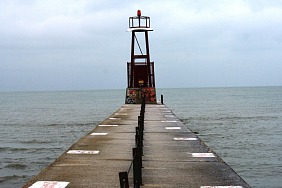As the world of work continues to evolve, many people are turning to remote working as a way to achieve a better work-life balance and increase their productivity. Working remotely in France is becoming increasingly popular, and with the right preparation and knowledge, it's possible to make the most of the country's many job opportunities. This guide provides an overview of what to expect when undertaking remote work in France, from legal considerations to productivity and career development.
Finding Remote Work Opportunities in France
When it comes to finding remote work opportunities in France, the best place to start is with online job boards and freelancing sites. These websites are ideal for finding short-term contracts, as well as more permanent roles, and they often have specific filters that allow you to tailor your search to remote jobs in France. You can also use professional networks, such as LinkedIn, to identify potential employers and apply directly for roles. Many businesses also have dedicated remote work programs, which can be a great way to find suitable job opportunities.
Networking is also important when it comes to finding remote work in France. Attend local events and join online forums to connect with other remote workers and employers, and build up your network of contacts. This can be extremely useful when it comes to finding job opportunities, as well as getting advice and tips from experienced remote workers in the country.
Legal Considerations for Remote Working in France
When undertaking remote work in France, it's important to be aware of the legal considerations. You will need to obtain a working visa and register with the local tax office, so it's best to seek advice from a legal professional before starting any new job. You will also need to ensure that your contracts are in line with French employment law, and that you are aware of the local regulations regarding working hours, overtime, vacation, and other rights.
It's also worth bearing in mind that if you are a freelancer or self-employed, you may be liable for additional taxes in France. This includes a 3% tax on any income earned from abroad, as well as a social security contribution. Again, it's best to seek legal advice before undertaking any remote work in France to ensure that you are fully compliant with the law.
Productivity and Communication Tips for Remote Working in France
When working remotely in France, it's important to ensure that you remain productive and stay in regular contact with your colleagues. To this end, it's a good idea to set yourself a schedule and stick to it, as this will help you to stay on top of tasks and avoid procrastination. It's also important to use the right tools to stay connected with your colleagues, such as video conferencing software and project management apps. This will help to ensure that you remain productive and can easily collaborate with others.
Furthermore, it's important to ensure that your working environment is comfortable and conducive to productivity. Invest in a good quality office chair and ergonomic equipment, and make sure that you have plenty of natural light and a comfortable temperature. Taking regular breaks is also important, as this will help to keep you focused and energized throughout the day.
Career Development for Remote Workers in France
When it comes to career development for remote workers in France, there are many opportunities available. You can take advantage of online courses and webinars, as well as attending physical events and networking with other professionals. You can also use online resources to stay up to date with the latest trends and developments in your field, and take advantage of mentoring and coaching opportunities.
Furthermore, there are a number of organizations and initiatives dedicated to supporting remote workers in France. These can be a great source of advice and support, and will help to ensure that you remain motivated and engaged in your work. Joining a remote work community or online forum can also be beneficial, as this will allow you to connect with other professionals and learn from their experiences.
Conclusion
Working remotely in France is a great way to achieve a better work-life balance and take advantage of the country's many job opportunities. However, it's important to be aware of the legal considerations and ensure that you are compliant with local regulations. It's also essential to remain productive and stay in regular contact with your colleagues, and take advantage of the many career development opportunities available to remote workers in France.














